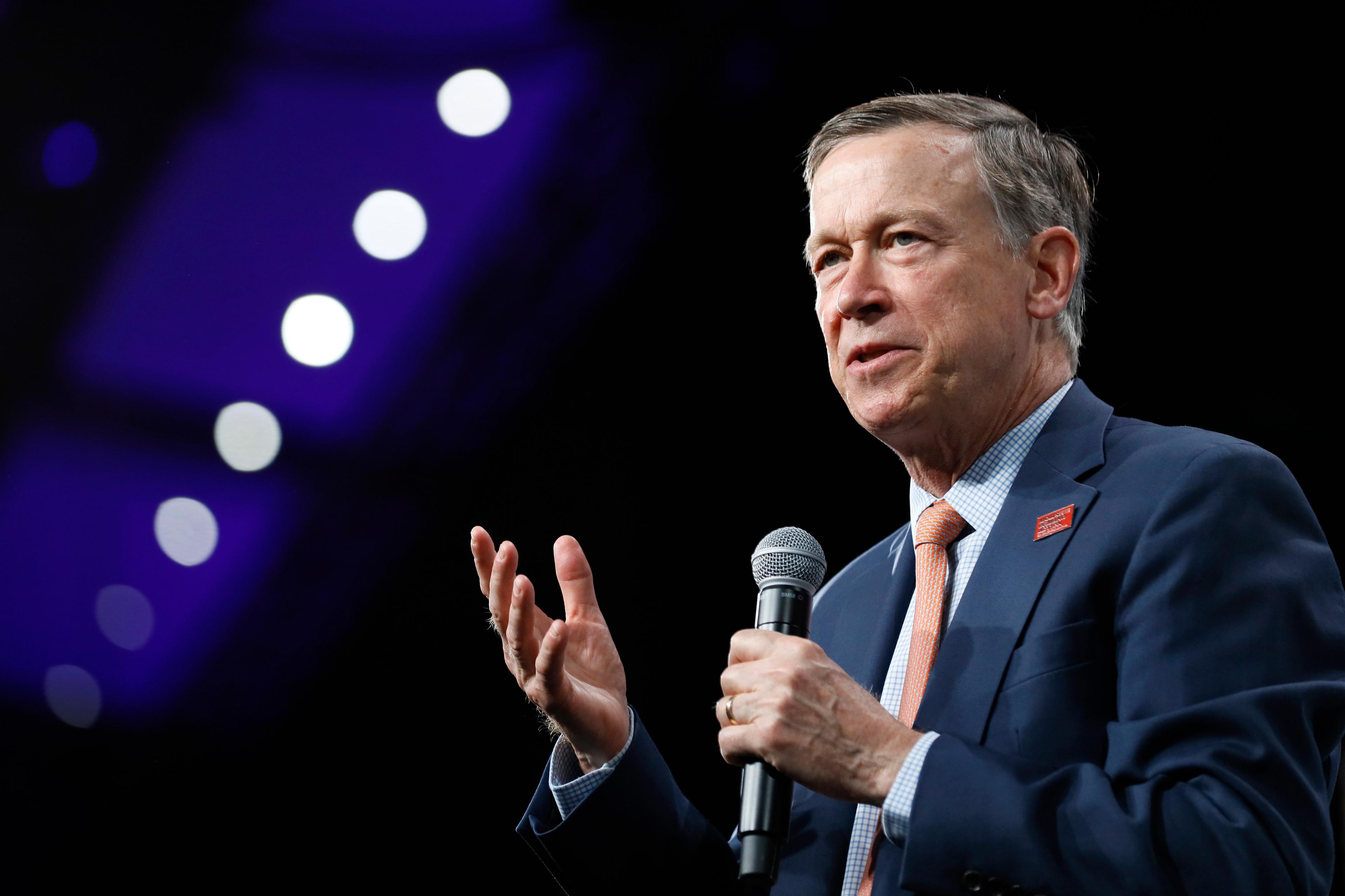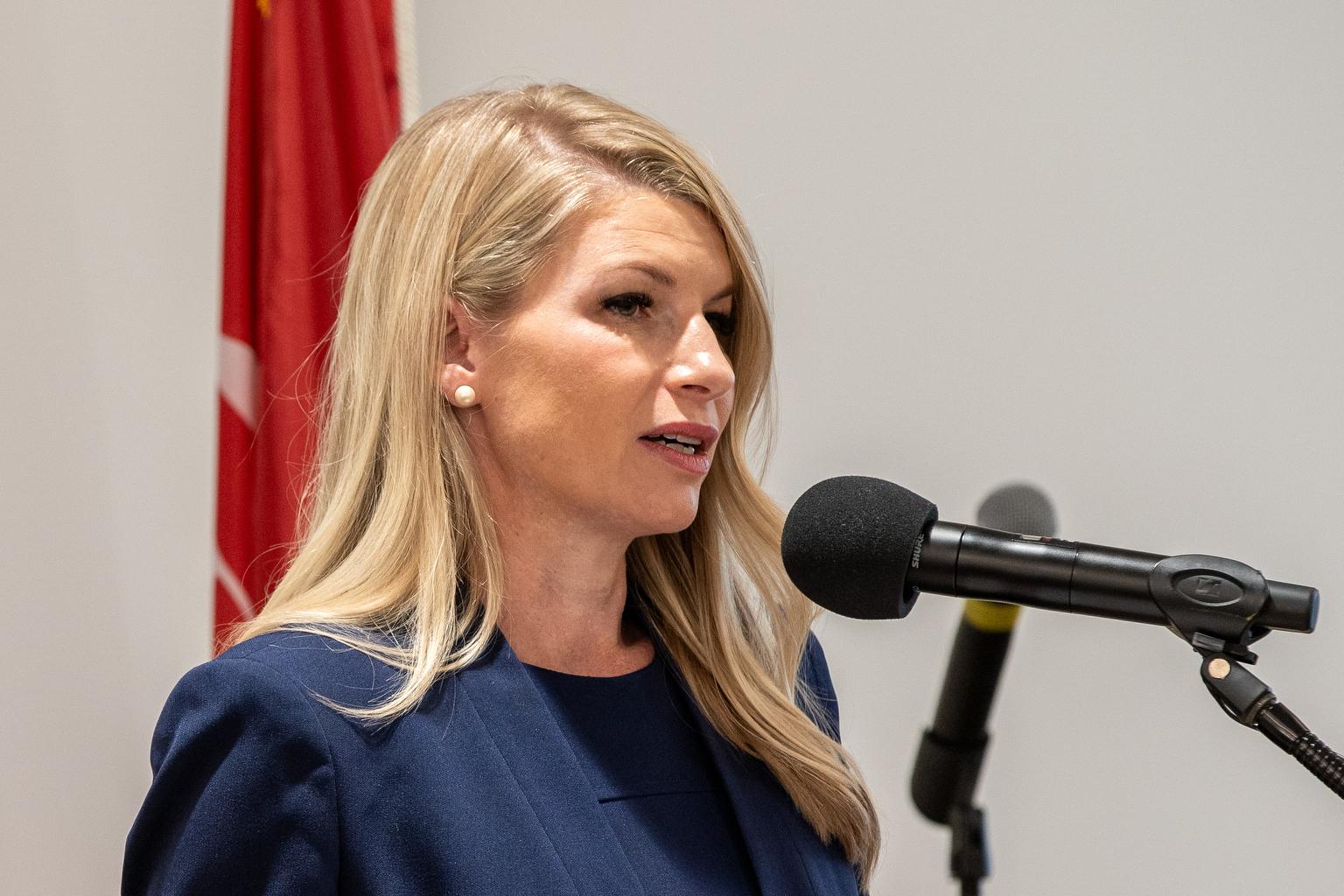
Former Gov. John Hickenlooper’s entrance into Colorado’s U.S. Senate race has brought the contest to the national spotlight, in part for the rifts exposed between Democratic party leaders and progressive activists on the ground.
Hickenlooper's White House bid never gained traction and he only decided to challenge incumbent Republican Sen. Cory Gardner after months of wooing by national party figures, like Senate Minority Leader Chuck Schumer. They apparently overcame Hickenlooper’s own, oft-repeated, assertion that he wasn’t interested in, or cut out for, the Senate.
“There are a number of people I talked to, but it wasn't any one thing for me,” Hickenlooper said about his change of heart. “It was really a function of, how do you make a difference, right? And all this time I've been... not giving credit to the possibility that Washington can change.”
Almost immediately after Hickenlooper declared his candidacy, the messages of support started to pour in from former rivals in the presidential field: California Sen. Kamala Harris, former Vice President Joe Biden and South Bend Mayor Pete Buttigieg among them.
But it was the Democratic Senatorial Campaign Committee’s swift endorsement that has Hickenlooper’s primary opponents up in arms.
The DSCC endorsement unlocks fundraising and strategic help for Hickenlooper. And there are allegations the committee is actively working against at least one of his opponents. Former state House Speaker Andrew Romanoff made national news when he accused the committee of threatening to blackball consulting firms if they worked with his campaign.
“They got told that if they did business with us, they would lose a contract with the senatorial campaign committee or the other tentacles that it controls,” Romanoff said. “We’re building a great grassroots team. If that doesn't sit well with some folks in Washington, to heck with it.”
This isn’t Romanoff’s first time up against the Democratic establishment. In 2010, he waged a bitter, and ultimately unsuccessful, primary fight against Sen. Michael Bennet. Colorado's Democratic senator went on to chair the DSCC four years later.
Romanoff and other Democrats in the primary race argue the DSCC is disregarding their wing of the party by backing a moderate like Hickenlooper.
“We're a very progressive state and we need to ensure that we have diverse voices. And for those who don't realize it, this country and the voices are changing,” said state Sen. Angela Williams, one of six female candidates who signed a letter asking the DSCC to rescind its “premature” endorsement.
The signees reminded the committee that Colorado has never elected a female senator.
The debate over how active a role the DSCC should play in state primaries goes far beyond the state. Progressive activists in Washington are also crying foul over its tactics.
“It’s crazy for Democrats to be shooting themselves in the foot by nominating someone or supporting someone who is actively working against Medicare For All and the Green New Deal and other progressive priorities that are clearly popular right now within the party,” said Maria Langholz with the Progressive Change Campaign Committee.
However, the DSCC and its defenders argue Hickenlooper’s strong name recognition and track record of two statewide victories make him the man to beat Gardner. Democrats have high hopes of picking up his seat as Gardner is one of only two Republican Senators up for reelection in 2020 in a state President Trump lost. It’s expected to be one of the hardest fought and most expensive races in the country.
“This is all about who’s best positioned to win the election,” said long-time Democratic strategist Jim Manley. “The last thing we as a party need is to go through a divisive primary. I think this is a smart strategic move by the DSCC.”
This line of argument has already persuaded one challenger — former state Sen. Mike Johnston — to get out of the race rather than endure what is likely to become a protracted negative primary fight. Before Hickenlooper entered the race, Johnston led the Democratic money field.
“I think people are right around the country to care,” Johnston said. “If we were to mess up this race, if we were to have a nasty Democratic primary and we were to wound our nominee enough that they lost to Cory Gardner, you could lose a generation in the Supreme Court to that battle. That’s not a risk I was willing to take.”
The coming weeks will show whether any of the other Democrats in the race come around to Johnston’s view, or instead chose to keep up the fight all the way to next year’s primary day.









